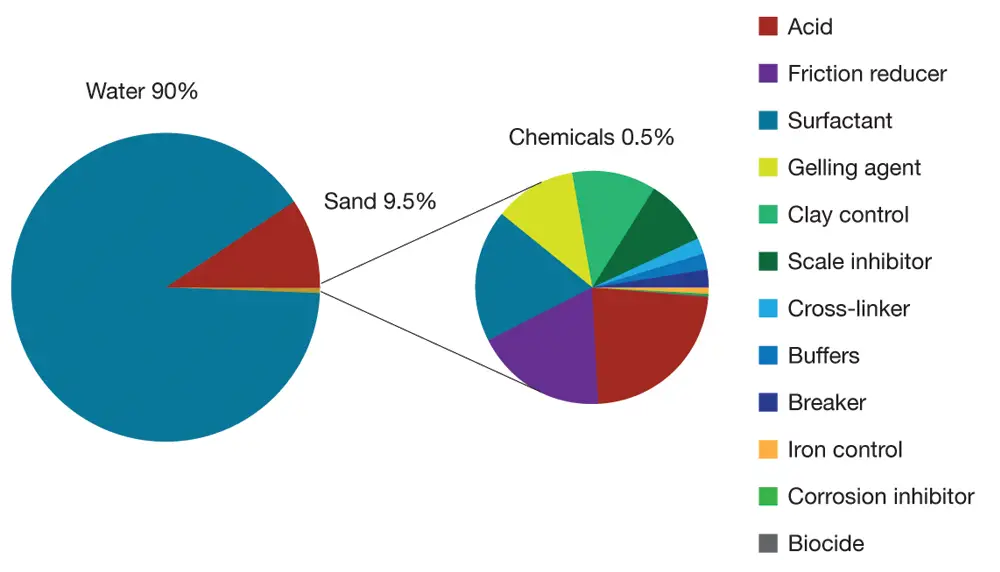Last Updated on August 19, 2023 by Pittalks
Hydraulic fluid, an integral component in various mechanical systems, has often been a topic of debate when it comes to its flammability. This comprehensive guide will delve deep into the subject, addressing all your concerns related to the question – is hydraulic fluid flammable? Let’s kick-start the exploration!
Understanding Hydraulic Fluids
Hydraulic fluid, often referred to as hydraulic oil, is a potent medium used to transfer power within hydraulic systems. These systems range from small devices like toys to large applications such as aircraft or industrial machinery. Hydraulic fluid can either be petroleum-based, water-based, or a blend of both depending on its intended use. It is vital to note that the flammability of hydraulic fluid largely depends on its type and composition.

The Core of Hydraulic Systems
A hydraulic drive system constitutes hydraulic fluid as well as three pivotal mechanical components. The system includes a pressure generator or hydraulic pump, which could be powered by an electric motor, an engine, or a manual pump. The system’s ‘plumbing’ includes valves, filters, and pipes, while the ‘motor’ could be a hydraulic motor, a hydraulic actuator, or a hydraulic cylinder.
Here’s an example of a typical hydraulic system configuration:

From small general aviation aircraft employing hydraulic components for wheel brakes, to larger aircraft where hydraulic systems power other functionalities like landing gear retraction/extension and flight control actuation, the use of hydraulic systems is ubiquitous. Given this wide application, understanding the flammability of hydraulic fluids becomes crucial for ensuring safety and preventing accidents.
The Flammability Spectrum of Hydraulic Fluids
Hydraulic fluids can be categorized into several types, each possessing different flammability characteristics:
Mineral Oils: These are petroleum-based hydraulic fluids with a flashpoint ranging between 300 and 600 degrees Fahrenheit. The flashpoint denotes the lowest temperature at which vapors can ignite.
Fire-Resistant Fluids: These fluids have been formulated to resist ignition and burning, thereby reducing the risk of fire in hydraulic systems.
Water/Oil Emulsions: These are hydraulic fluids where water is the continuous phase and oil is the dispersed phase. They are less flammable due to their high water content.
Water Glycol: These are water-based fluids and are generally non-flammable. However, using these types of fluids could lead to corrosion issues.
Phosphate Esters: These are synthetic, fire-resistant fluids that are relatively difficult to ignite at room temperature.
Each of these fluids exhibits varied flammability properties, posing distinct safety considerations.
| Fluid Type | Composition | Ignition Resistance | Suitable Applications |
|---|---|---|---|
| Water Glycol | Water and glycol mixture | High | Aircraft, machinery |
| Water/Oil Emulsions | Water and oil mixture | Moderate | Industrial machinery |
| Phosphate Esters | Synthetic compounds | Very High | High-temperature env. |
Answering the Burning Question: Is Hydraulic Fluid Flammable?
When confronted with the question – is hydraulic fluid flammable, the answer is multifaceted. Water-based hydraulic fluids are generally not flammable. In contrast, petroleum-based hydraulic fluids, despite having high ignition temperatures, can catch fire when exposed to temperatures between 300 to 600 degrees Fahrenheit. They can also auto-ignite or combust without a spark or flame at temperatures ranging from 500 to 750 degrees Fahrenheit. Therefore, while hydraulic fluid is technically not classified as flammable, it will burn under certain conditions.
The Perils of a Hydraulic Fluid Fire
Hydraulic fluid, particularly when pressurized, is a potential fire hazard. Flames from a hydraulic oil fire can spread over considerable distances, potentially reaching other combustibles, and resulting in extensive fire damage. In industrial settings, precautions are taken to keep hydraulic fluid stores below certain levels to mitigate the potential fire risks.
The Role of Fire-Resistant Hydraulic Fluids
Fire-resistant hydraulic fluids play a crucial role in mitigating the risks of hydraulic fluid fires. These fluids, often composed of water glycols, water/oil emulsions, or synthetic compounds, are designed to resist ignition and burning. Phosphate esters, for instance, can only sustain combustion when heated to temperatures exceeding 180 degrees Celsius, making them relatively safe for use in high-temperature environments.
The Implication of Overheating Hydraulic Fluids
Hydraulic fluid overheating can lead to serious problems. Overheated fluid can break down the compounds within the system, particularly damaging the sealant compounds. This could potentially result in system inefficiencies, equipment breakdowns, and in worst-case scenarios, fires.
The Safe Handling of Hydraulic Fluids
- Regularly maintain hydraulic equipment to prevent overheating and breakdowns.
- Use fire-resistant fluids in high-temperature environments to reduce fire risk.
- Store hydraulic fluid stores below recommended levels to mitigate fire hazards.
- Maintain a safe distance between hydraulic fluid storage and potential ignition sources.
- Have proper fire extinguishing equipment and procedures in place.

Despite the potential fire risks, hydraulic fluids can be safely handled and used with appropriate precautions. Ensuring regular maintenance of hydraulic equipment, using fire-resistant fluids where applicable, and maintaining sufficient distance from ignition sources are some measures to prevent hydraulic fluid fires.
Here’s an example of markings used for standard fire hazards, keep them in mind at all times to remain safe and informed.
FAQs and Related Questions
Is hydraulic fluid flammable, and what factors matter?
Hydraulic fluid flammability depends on type and composition. Water-based fluids are generally non-flammable, while petroleum-based ones can catch fire under specific conditions.
How does fluid type affect flammability?
Fluid type affects flammability. Mineral oils have moderate risk, fire-resistant fluids resist ignition, and water-based fluids are safer due to higher water content.
How to handle hydraulic fluids safely?
Regular maintenance, fire-resistant fluids where needed, proper storage, and distance from ignition sources ensure safe handling.
How do fire-resistant fluids enhance safety?
Fire-resistant fluids resist ignition and burning. Using them, like water glycols or synthetic compounds, reduces hydraulic fluid fire risks, safeguarding equipment and personnel.
Read more from the flammability series:
Is diesel flammable?
Is motor oil flammable?
Is power steering fluid flammable?
Is coolant flammable?
Is trans fluid flammable?
Is brake fluid flammable?
Wrapping Up
In conclusion, while most hydraulic fluids are not technically flammable, they can catch fire under certain conditions. The key lies in understanding the type of hydraulic fluid in use, its flammability characteristics, and the appropriate safety measures needed to handle it. Always remember, prevention is better than cure, especially when dealing with potentially hazardous substances like hydraulic fluids.

